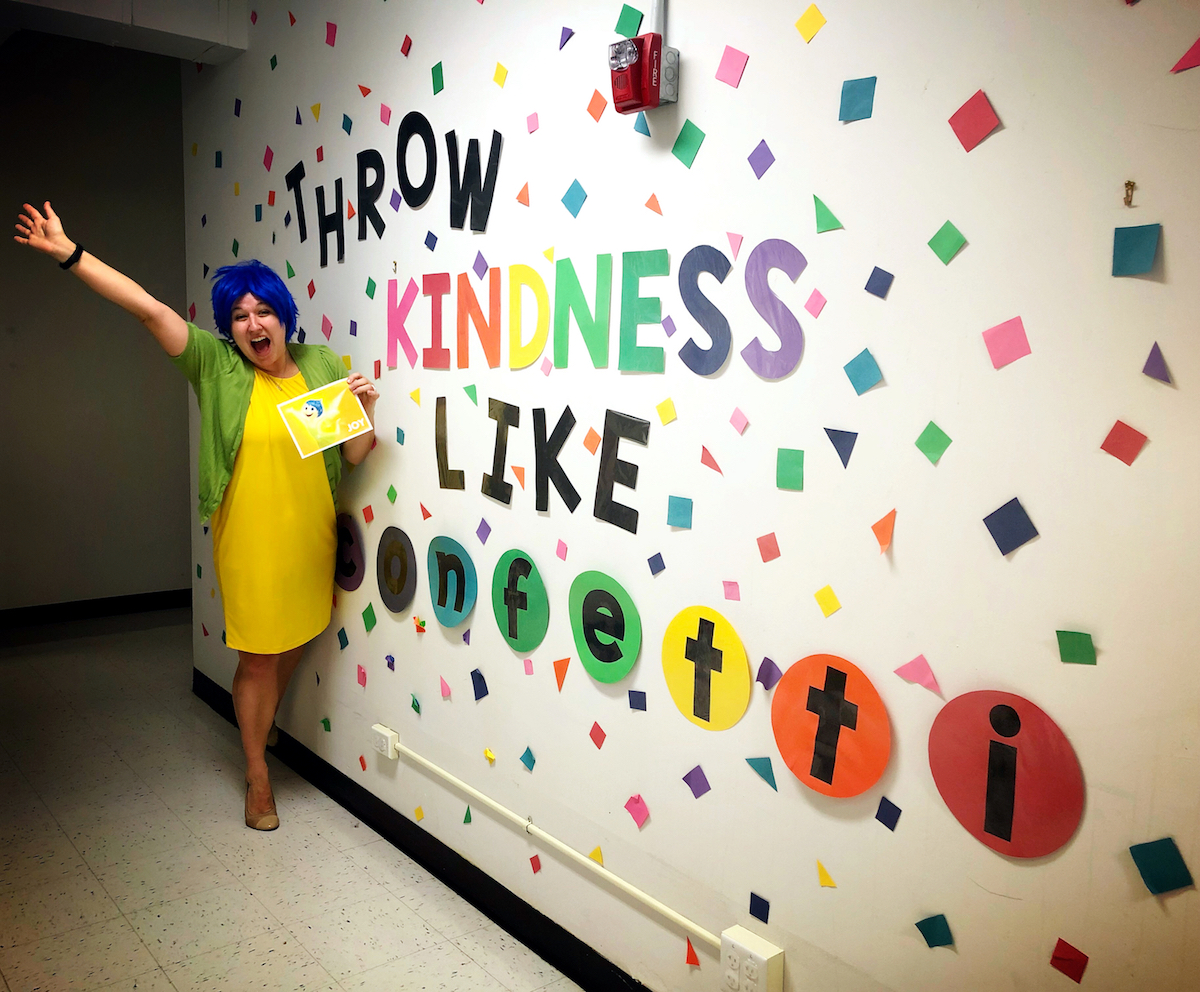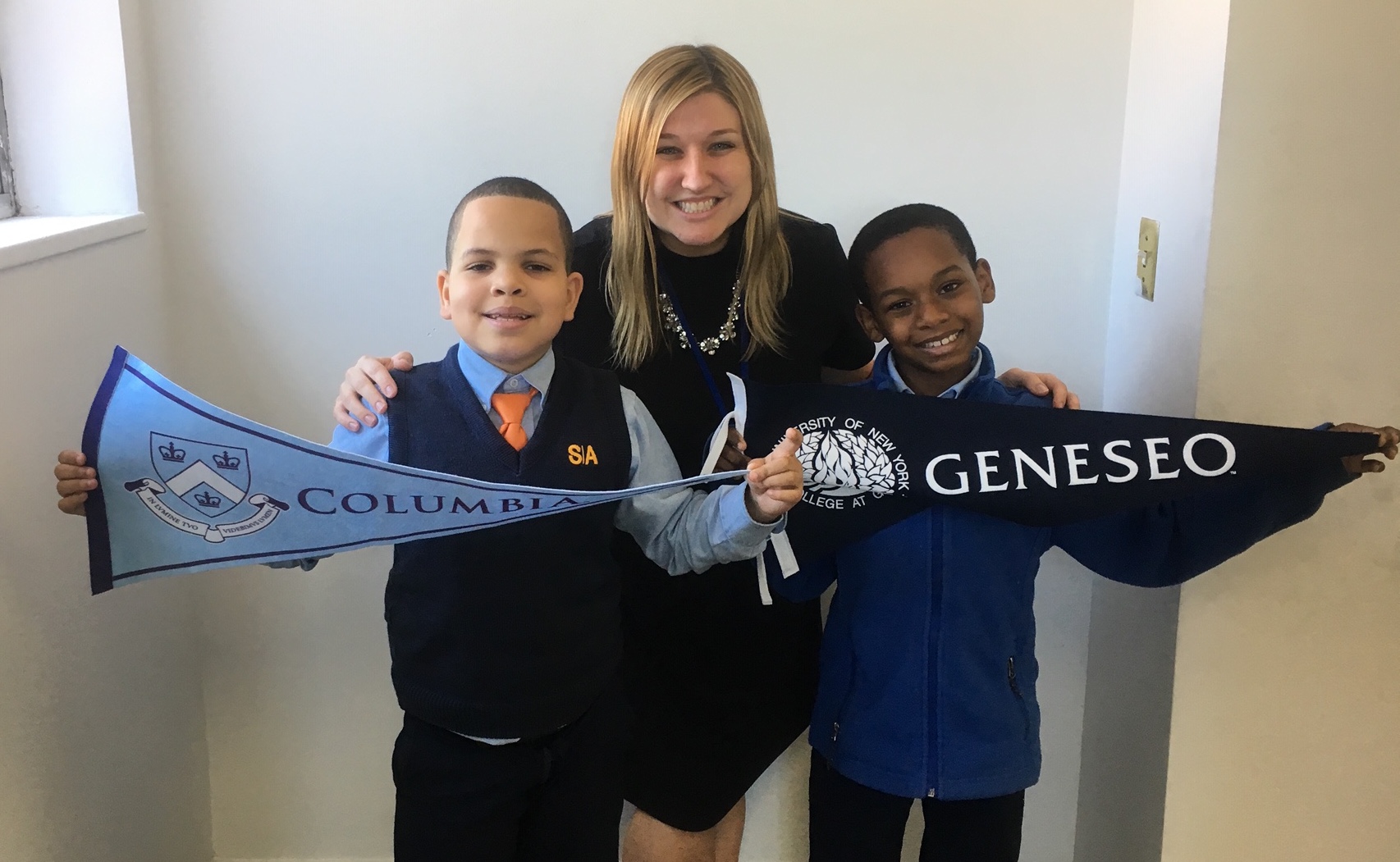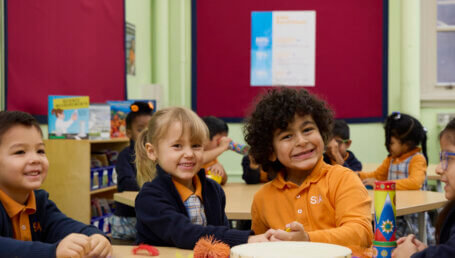
Natasha Storonsky Becker and Katelyn Klipfel are not teachers, but play an essential role in helping Success Academy scholars learn and grow. As school psychologists, at SA Washington Heights and SA High School of the Liberal Arts, respectively, they work directly with scholars, teachers, school leadership, and families to foster not just scholars’ academic growth, but their social and emotional development as well.
They are not alone. Every Success Academy school has a psychologist on staff, and yet many SA families are not aware of the full range of services offered. Recently, we spoke with Natasha and Katelyn to get a sense of the essential work they and other school psychologists across the SA network do, day in and day out. The following are excerpts from our discussions.
Broadly speaking, what do school psychologists do?
Natasha: The role of a school psychologist encompasses several different tasks. First, there’s psycho-educational testing — conducting evaluations to see if there’s an area of need that would warrant an IEP [Individualized Education Plan]. Second, there’s formal counseling, which is tailored for scholars with IEPs. Third, there’s informal counseling, which is open to scholars who may be struggling with their emotional development or mental health.
Additionally, if a child has something going on at home — for example, the loss of a family member or an illness or a divorce — the psychologist is another adult in the school that a child can turn to.
Katelyn: One of the best parts of being at Success is that there are so many facets to our work. My job mostly concerns working with the special ed population and providing a range of counseling services, both individually and in groups.
Because the population of students I work with is older, I tend to help them with things like time management, anger management, social and communication skills, and how to cope with anxiety, particularly anxiety relating to social media and societal pressures like body image.

What are some of the most common issues you see?
Natasha: It depends, but for the most part I help scholars develop the skills that will help them process and express emotions in a healthy way.
For instance, if a child becomes frustrated and shuts down during a subject that they struggle with, I could help them to develop strategies that would help them better process that frustration in the future.
Katelyn: I work with kids on a range of issues, but two things I often return to are time management and communication skills, including communication on social media — and the anxiety that those two things can produce. The unique thing about this generation is the sheer amount of time spent online. As a result, we’re seeing some of the most anxious teenagers in history.
Social media occupies a lot of teenagers’ time. It can cause a lot of distraction and procrastination, and creates a lot of pressure: the pressure that comes from constantly comparing yourself to celebrities and influencers and your peers. It also provides 24/7 access to those peers. That means stress and drama at school can follow you home.

What are some of the strategies you use to help scholars?
Natasha: First, I would try to help them identify the emotion that they’re feeling. Sometimes, I use a visual aid, such as a “feeling thermometer” that has different emotions listed such as angry, sad, happy, calm, nervous, et cetera.
Then, we would try to recognize certain “triggers” that might help them realize when they’re feeling a certain way and why. “I feel frustrated when I come across a math problem I can’t figure out,” or “I can tell that I’m getting really upset because my face feels hot.”
From there, we would work on strategies to help the scholar cope with those strong emotions: “When I feel this way, I can take deep breaths. I can drink water. I can write in my journal.”
Katelyn: What I’ll have scholars do is take a look at their upcoming week, see what it is they have to accomplish, and work backwards from there. I recommend making a regimented routine that includes time for work, play, and self-care. I really believe in that balance.
In terms of helping with anxiety, I often teach scholars mindfulness strategies that can help them cope with feelings of stress: meditating, writing in a journal, taking moment to breath and ask yourself: “What is it that’s really bothering me?” Traditionally, I don’t think schools have done enough to educate kids about their emotions or mental health, especially when they are adolescents and their brains are still developing. That’s something that I like to think psychologists at Success can help with during counseling.
What can parents do at home?
Natasha: Parents are an integral part of the entire counseling process, and I make sure that the resources I use in counseling are also available at home.
For example, some parents regularly use the feeling thermometer visual aid at home. I know a family that keeps a feeling thermometer on the fridge and they use it to model the whole process for their kids. The parents show that it’s okay to have these emotions and these feelings, and they’re helping to teach their children what’s important is how you manage these emotions.
Katelyn: Parents always play a crucial role. Obviously, they know their kids best, and although it’s important to grant high school and middle school scholars greater independence, parents shouldn’t let go of the reins either. I often tell parents, you can’t take their calculus test for them, but you can create routines and an environment at home that’s conducive to both good academics and mental health.










